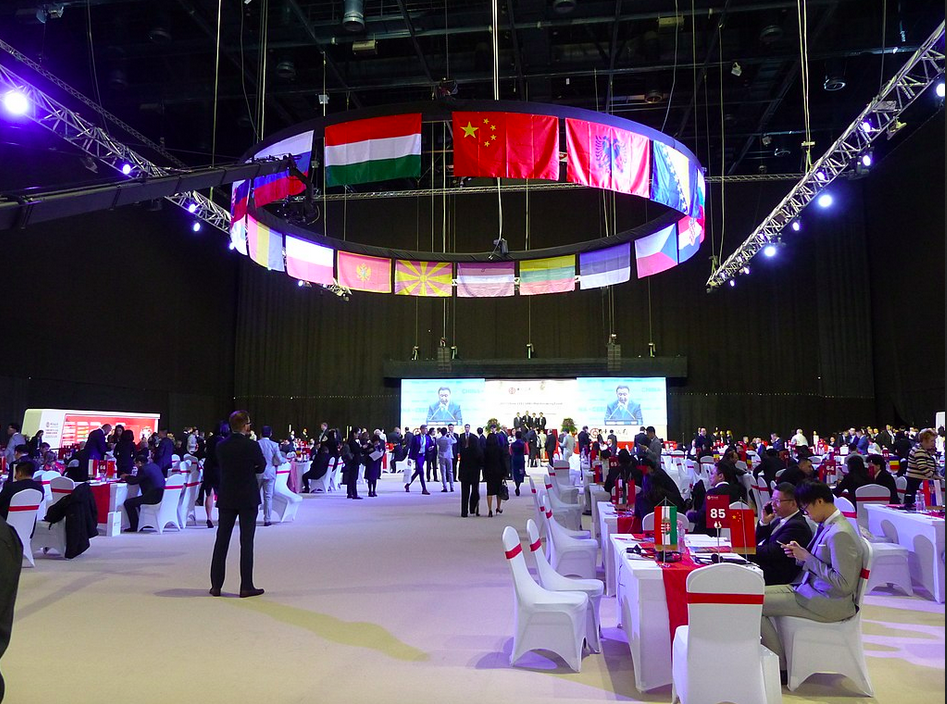
The two Baltic nations of Estonia and Latvia are severing ties with a diplomatic club set up by China, Reuters reports. The move comes after Lithuania’s withdrawal late last year. Beijing, which started the initiative in 2012, is taking the news badly.
After announcing their leaving on August 11th, the governments of Tallinn and Riga declared they would still continue to work towards “constructive and pragmatic relations with China” while respecting the rules—based on international order and human rights.
The latter no doubt is a reference to Beijing’s continued cozying up to Russia, the invasion of which into Ukrainian territory is seen by both countries as an infraction of those principles. It was primarily for this reason, as well as Beijing’s escalation of military activities around Taiwan, which it claims as its own territory, that they have now taken this step.
This means the so-called 16+1 eastern European framework with China is now reduced to 14. The remaining members include several EU states, such as Bulgaria, Croatia, the Czech Republic, Greece, Hungary, Poland, Romania, Slovakia, and Slovenia.
Following the announcement, Lithuania’s minister of foreign affairs Gabrielius Landsbergis tweeted that “China’s 17+1 format was already redundant and divisive long before Lithuania quit.” According to him, the mechanism should be replaced by “EU27+1,” or in other words, direct cooperation between China and the EU.
China's 17+1 format was already redundant and divisive long before Lithuania quit. Latvia and Estonia are now closing the door too. 14+1 should be replaced with EU27+1.
— Gabrielius Landsbergis🇱🇹 (@GLandsbergis) August 11, 2022
Relations between Lithuania and China had a rift last year after the former allowed Taiwan to open an embassy. Opting for an economic penalty, Beijing promptly responded by banning the import of Lithuanian products. Thus far, Lithuania has been the only EU state to publicly endorse U.S. House speaker Nancy Pelosi’s controversial visit to Taiwan.
Last Friday, China imposed sanctions on Lithuanian Deputy Transport and Communications Minister Agne Vaiciukeviciute for having visited the island.
In a Saturday piece by the state-controlled Global Times, Chinese analysts called Estonia’s and Latvia’s approach “shortsighted.” Their move, the piece states, will not have “a major impact on the China-CEEC [Central and Eastern European Countries] Cooperation,” while “pinning their hopes on the EU and the U.S. is very unwise,” since “the EU and the US can hardly offer them any tangible or much-needed economic help.”
Withdrawal from the 16+1 framework was not all that Latvia had on the agenda last Thursday. Additionally, its parliament declared Russia a “state sponsor for terrorism” over its attacks on civilians in the Ukrainian war, urging all other countries to do likewise. “Latvia recognises Russia’s actions in Ukraine as targeted genocide against the Ukrainian people,” it said in a resolution.
In a tweet, Ukraine’s Foreign Minister Dmytro Kuleba said he was grateful for the decision, and that “Russia has long deserved this status with its actions in Ukraine and beyond.”
Grateful to Latvian parliament Saeimas and all of its members for recognizing Russia as a state sponsor of terrorism. A timely move: Russia has long deserved this status with its actions in Ukraine and beyond. Ukraine encourages other states and organizations to follow suit. https://t.co/1lZNfYg7nP
— Dmytro Kuleba (@DmytroKuleba) August 11, 2022
Moscow has long held the position that it does not deliberately target civilians in what it calls its “special military operation,” aimed at protecting Russian speakers in Ukraine.
As a direct result of Russia being labelled a terrorist state, Latvia will no longer issue short-term Schengen visas to Russian and Belarusian citizens. Estonia will do likewise, and has joined countries like Ukraine, Finland, and the Czech Republic which call for other EU states to follow suit.
